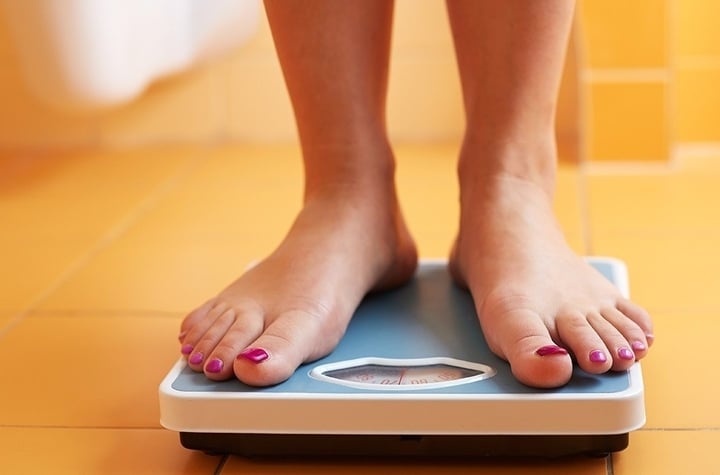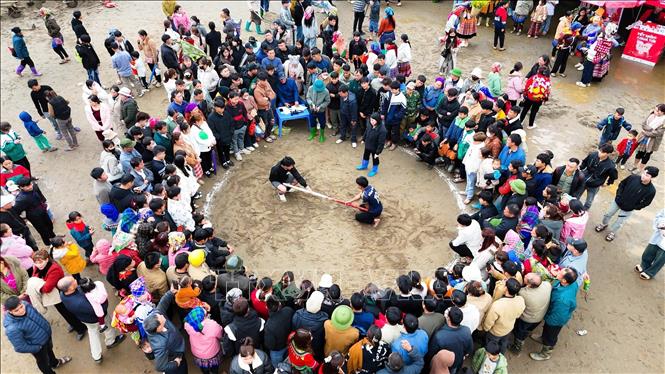According to an article on the website of the Vietnam Institute of Applied Medicine, weight changes in a day depend on many factors, including diet, exercise, rest, and how you weigh yourself. The balance between energy intake (eating, drinking) and energy expenditure (burning those calories) is the reason why your weight increases, decreases, and changes in a day. If you take in more than you burn, you will gain weight immediately.
How you weigh yourself also affects the results, such as whether the scale is flat, how you stand when weighing yourself (equal weight on both feet), and what you wear. These factors must be consistent from one weighing to the next, otherwise the numbers will vary.
Mornings are usually the best time to get the most accurate results. You’ve had some sleep and probably haven’t eaten much. However, as the day progresses, your weight will peak after a big meal.
Some athletes can lose 6% to 10% of their body weight after a workout (mostly due to sweat). Your change may not be as dramatic, but it's not uncommon to lose a pound or two after hitting the gym.
Many medications, including anti-inflammatory drugs, antihistamines, and opioids, can cause rapid weight loss. Other medications, such as insulin, antidepressants, and some anti-seizure medications, can cause rapid weight gain. Always ask your doctor about the side effects of the medications you take, including weight-related effects, for both prescription and over-the-counter medications.

Our weight when weighed in the morning will not be the same as when weighed in the evening. (Illustration photo)
The article on the website of Vinmec healthcare system also points out factors that can cause a person's weight to change during the day.
Drinking more water than you need each day can also cause weight fluctuations. A liter of water weighs about 1 kilogram. If you only drink water and don't exercise, it will show on the scale. That doesn't mean you should give up drinking water. You need to drink enough water throughout the day. Also, drinking water (especially plain water instead of sugary, high-calorie drinks) can help you lose weight.
Drinking too little water can also cause sudden weight loss. Your body is about 55% to 75% water. Dipping below your natural level can cause headaches or dry skin. If you drink too little water for your body's needs, you may have trouble even concentrating. You can also lose weight suddenly if you don't drink enough to replace what you lose during the day, causing dehydration, which will show up on the scale.
Studies show that drinking a cup or three of coffee can help you control your weight. Caffeine may help curb your appetite or burn a few calories. But be careful: If your cup of coffee is loaded with sugar, milk, or cream, it can also push the scales in the other direction.
Studies show that how much or how little you sleep can change your weight. For example, after sleepless nights, you may feel hungrier than usual. This can cause you to eat more food and meals, leading to weight gain during the day.
Source: https://vtcnews.vn/vi-sao-can-nang-thay-doi-trong-ngay-ar905377.html





![[Photo] Ministry of Defense sees off relief forces to the airport to Myanmar for mission](https://vstatic.vietnam.vn/vietnam/resource/IMAGE/2025/3/30/245629fab9d644fd909ecd67f1749123)

![[Photo] Prime Minister Pham Minh Chinh chairs meeting to remove difficulties for projects](https://vstatic.vietnam.vn/vietnam/resource/IMAGE/2025/3/30/7d354a396d4e4699adc2ccc0d44fbd4f)

























































































![[REVIEW OCOP] An Lanh Huong Vet Yen Cat](https://vstatic.vietnam.vn/vietnam/resource/IMAGE/2025/3/27/c25032328e9a47be9991d5be7c0cad8c)


Comment (0)